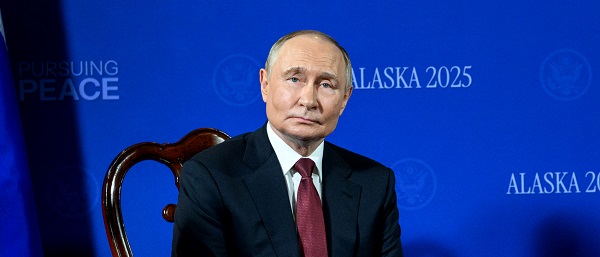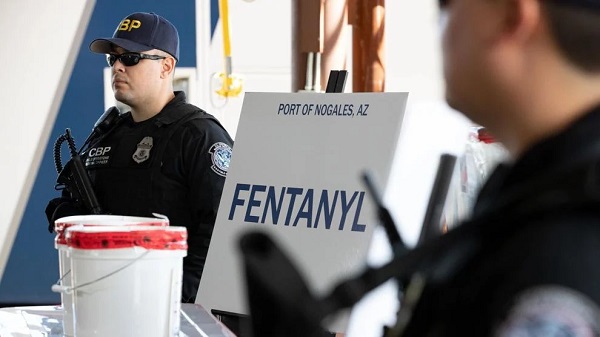Alberta
Alberta gov’t initiates bill to make sex-ed optional, stop schools from hiding pronoun changes

From LifeSiteNews
The Education Amendment Act requires parents to opt in rather than opt out of sex education and mandates that schools seek parental permission to use a different pronoun for their child.
Alberta’s United Conservative Party (UCP) government officially introduced a bill that will change the law so that parents must “opt in rather than opt out” their children into sexual education lessons and also mandate that parental permission is obtained before a student uses a different pronoun.
Late last week, Alberta Premier Danielle Smith announced Bill 27, or the Education Amendment Act, that focuses on teaching and instructional material “that deal primarily and explicitly with gender identity, sexual orientation or human sexuality.”
The new bill means sexual education classes will not be included in a child’s education, and teachers or school staff will no longer be allowed to conceal whether a student begins to use different pronouns or names.
Once Bill 27 becomes law, schools must notify parents of what is being taught at least “30 days in advance and be given the opportunity to opt in rather than opt out of this instruction,” the government said regarding the bill in a press release.
“This new model would ensure parents are notified in advance and have the information needed to make an informed decision on whether specific topics are appropriate and fit the needs of their child and family,” the government said.
Smith’s government said the change aims to create “transparency in what is being taught in the classroom to ensure parents have the opportunity to identify if there is a particular subject matter they wish to supplement in conversations with their child outside of the classroom.”
Alberta Minister of Education Demetrios Nicolaides had earlier stated that such a bill would be forthcoming, noting the changes the government is proposing will “keep families informed while navigating complex conversations as well as public health and states of emergency.”
Bill 27 also will empower the education minister to in effect stop the spread of extreme forms of pro-LGBT ideology or anything else to be allowed to be taught in schools via third parties.
The government says the new law will allow the minister to “approve learning and teaching resources and external presenters for topics dealing primarily and explicitly with gender identity, sexual orientation or human sexuality.”
“This would create greater transparency on what resources are being used to teach sensitive topics, which third-parties are presenting to students, and provide greater assurance that learning and teaching resources are appropriate and relevant to the curriculum,” the government says.
The new law will also mandate that schools notify parents and seek “their consent for a student 15 years old and under if they request that school staff refer to them by a new gender-related preferred name or pronouns at school.”
It would also mandate that schools notify parents of a “16 or 17-year-old student’s request for school staff to refer to them by a new gender-related preferred name or pronouns at school.”
Smith’s announcement regarding pronouns and sex-ed classes comes at the same time she brought forth a law that will ban biological men from competing in women’s sports. It also comes after she introduced a much-anticipated bill banning so-called “top and bottom” surgeries for minors as well as other extreme forms of transgender ideology.
Last weekend, thousands of UCP members gathered for the party’s annual general meeting, where Smith won a 91.5 percent approval rating, indicating there is strong support for her pro-family policies.
Alberta
Canada’s New Green Deal

From Resource Works
Nuclear power a key piece of Western Canadian energy transition
Just reading the headlines, Canadians can be forgiven for thinking last week’s historic agreement between Alberta and Ottawa was all about oil and pipelines, and all about Alberta.
It’s much bigger than that.
The memorandum of understanding signed between Canada and Alberta is an ambitious Western Canadian industrial, energy and decarbonization strategy all in one.
The strategy aims to decarbonize the oil and gas sectors through large-scale carbon capture and storage, industrial carbon pricing, methane abatement, industrial electrification, and nuclear power.
It would also provide Canadian “cloud sovereignty” through AI computing power, and would tie B.C. and Saskatchewan into the Alberta dynamo with beefed up power transmission interties.
A new nuclear keystone
Energy Alberta’s Peace River Nuclear Power Project could be a keystone to the strategy.
The MOU sets January 1, 2027 as the date for a new nuclear energy strategy to provide nuclear power “to an interconnected market” by 2050.
Scott Henuset, CEO for Energy Alberta, was pleased to see the nuclear energy strategy included in the MOU.
“We, two years ago, went out on a limb and said we’re going to do this, really believing that this was the path forward, and now we’re seeing everyone coming along that this is the path forward for power in Canada,” he said.
The company proposes to build a four-unit, 4,800-megawatt Candu Monark power plant in Peace River, Alberta. That’s equivalent to four Site C dams worth of power.
The project this year entered a joint review by the Impact Assessment Agency and Canadian Nuclear Safety Commission.
If approved, and all goes to schedule, the first 1,000-MW unit could begin producing power in 2035.
Indigenous consultation and experienced leadership
“I think that having this strategy broadly points to a cleaner energy future, while at the same time recognizing that oil still is going to be a fundamental driver of economies for decades to come,” said Ian Anderson, the former CEO of Trans Mountain Corporation who now serves as an advisor to Energy Alberta.
Energy Alberta is engaged with 37 First Nations and Metis groups in Alberta on the project. Anderson was brought on board to help with indigenous consultation.
While working on the Trans Mountain pipeline expansion, Anderson spent a decade working with more than 60 First Nations in B.C. and Alberta to negotiate impact benefit agreements.
In addition to indigenous consultations, Anderson is also helping out with government relations, and has met with B.C. Energy Minister Adrian Dix, BC Hydro chairman Glen Clark and the head of Powerex to discuss the potential for B.C. beef up interties between the two provinces.
“I’ve done a lot of political work in B.C. over the decade, so it’s a natural place for me to assist,” Anderson said. “Hopefully it doesn’t get distracted by the pipeline debate. They’re two separate agendas and objectives.”
Powering the grid and the neighbours
B.C. is facing a looming shortage of industrial power, to the point where it now plans to ration it.
“We see our project as a backbone to support renewables, support industrial growth, support data centres as well as support larger interties to B.C. which will also strengthen the Canadian grid as a whole,” Henuset said.
Despite all the new power generation B.C. has built and plans to build, industrial demand is expected to far exceed supply. One of the drivers of that future demand is requests for power for AI data centres.
The B.C. government recently announced Bill 31 — the Energy Statutes Amendment Act – which will prioritize mines and LNG plants for industrial power.
Other energy intensive industries, like bitcoin mining, AI data centres and green hydrogen will either be explicitly excluded or put on a power connection wait list.
Beefed up grid connections with Alberta – something that has been discussed for decades – could provide B.C. with a new source of zero-emission power from Alberta, though it might have to loosen its long-standing anti-nuclear power stance.
Energy Minister Adrian Dix was asked in the Legislature this week if B.C. is open to accessing a nuclear-powered grid, and his answer was deflective.
“The member will know that we have been working with Alberta on making improvements to the intertie,” Dix answered. “Alberta has made commitments since 2007 to improve those connections. It has not done so.
“We are fully engaged with the province of Alberta on that question. He’ll also know that we are, under the Clean Electricity Act, not pursuing nuclear opportunities in B.C. and will not be in the future.”
The B.C. NDP government seems to be telling Alberta, “not only do we not want Alberta’s dirty oil, we don’t want any of its clean electricity either.”
Interconnected markets
Meanwhile, BC Hydro’s second quarter report confirms it is still a net importer of electricity, said Barry Penner, chairman of the Energy Futures Initiative.
“We have been buying nuclear power from the United States,” he said. “California has one operating power plant and there’s other nuclear power plants around the western half of the United States.”
In a recent blog post, Penner notes: “BC Hydro had to import power even as 7,291 megawatts of requested electrical service was left waiting in our province.”
If the NDP government wants B.C. to participate in an ambitious Western Canadian energy transition project, it might have to drop its holier-than-thou attitude towards Alberta, oil and nuclear power.
“We’re looking at our project as an Alberta project that has potential to support Western Canada as a whole,” Henuset said.
“We see our project as a backbone to support renewables, support industrial growth, support data centres, as well as support larger interties to B.C., which will also strengthen the Canadian grid as a whole.”
The investment challenge
The strategy that Alberta and Ottawa have laid out is ambitious, and will require tens of billions in investment.
“The question in the market is how much improvement in the regulatory prospects do we need to see in order for capital to be committed to the projects,” Anderson said.
The federal government will need to play a role in derisking the project, as it has done with the new Darlington nuclear project, with financing from the Canada Growth Fund and Canadian Infrastructure Bank.
“There will be avenues of federal support that will help derisk the project for private equity investors, as well as for banks,” Henuset said.
One selling point for the environmental crowd is that a combination of carbon capture and nuclear power could facilitate a blue and green hydrogen industry.
But to really sell this plan to the climate concerned, what is needed is a full assessment of the potential GHG reductions that may accrue from things like nuclear power, CCS, industrial carbon pricing and all of the other measures for decarbonization.
Fortunately, the MOU also scraps greenwashing laws that prevent those sorts of calculations from being done.
Resource Works News
Alberta
Schools should go back to basics to mitigate effects of AI

From the Fraser Institute
Odds are, you can’t tell whether this sentence was written by AI. Schools across Canada face the same problem. And happily, some are finding simple solutions.
Manitoba’s Division Scolaire Franco-Manitobaine recently issued new guidelines for teachers, to only assign optional homework and reading in grades Kindergarten to six, and limit homework in grades seven to 12. The reason? The proliferation of generative artificial intelligence (AI) chatbots such as ChatGPT make it very difficult for teachers, juggling a heavy workload, to discern genuine student work from AI-generated text. In fact, according to Division superintendent Alain Laberge, “Most of the [after-school assignment] submissions, we find, are coming from AI, to be quite honest.”
This problem isn’t limited to Manitoba, of course.
Two provincial doors down, in Alberta, new data analysis revealed that high school report card grades are rising while scores on provincewide assessments are not—particularly since 2022, the year ChatGPT was released. Report cards account for take-home work, while standardized tests are written in person, in the presence of teaching staff.
Specifically, from 2016 to 2019, the average standardized test score in Alberta across a range of subjects was 64 while the report card grade was 73.3—or 9.3 percentage points higher). From 2022 and 2024, the gap increased to 12.5 percentage points. (Data for 2020 and 2021 are unavailable due to COVID school closures.)
In lieu of take-home work, the Division Scolaire Franco-Manitobaine recommends nightly reading for students, which is a great idea. Having students read nightly doesn’t cost schools a dime but it’s strongly associated with improving academic outcomes.
According to a Programme for International Student Assessment (PISA) analysis of 174,000 student scores across 32 countries, the connection between daily reading and literacy was “moderately strong and meaningful,” and reading engagement affects reading achievement more than the socioeconomic status, gender or family structure of students.
All of this points to an undeniable shift in education—that is, teachers are losing a once-valuable tool (homework) and shifting more work back into the classroom. And while new technologies will continue to change the education landscape in heretofore unknown ways, one time-tested winning strategy is to go back to basics.
And some of “the basics” have slipped rapidly away. Some college students in elite universities arrive on campus never having read an entire book. Many university professors bemoan the newfound inability of students to write essays or deconstruct basic story components. Canada’s average PISA scores—a test of 15-year-olds in math, reading and science—have plummeted. In math, student test scores have dropped 35 points—the PISA equivalent of nearly two years of lost learning—in the last two decades. In reading, students have fallen about one year behind while science scores dropped moderately.
The decline in Canadian student achievement predates the widespread access of generative AI, but AI complicates the problem. Again, the solution needn’t be costly or complicated. There’s a reason why many tech CEOs famously send their children to screen-free schools. If technology is too tempting, in or outside of class, students should write with a pencil and paper. If ChatGPT is too hard to detect (and we know it is, because even AI often can’t accurately detect AI), in-class essays and assignments make sense.
And crucially, standardized tests provide the most reliable equitable measure of student progress, and if properly monitored, they’re AI-proof. Yet standardized testing is on the wane in Canada, thanks to long-standing attacks from teacher unions and other opponents, and despite broad support from parents. Now more than ever, parents and educators require reliable data to access the ability of students. Standardized testing varies widely among the provinces, but parents in every province should demand a strong standardized testing regime.
AI may be here to stay and it may play a large role in the future of education. But if schools deprive students of the ability to read books, structure clear sentences, correspond organically with other humans and complete their own work, they will do students no favours. The best way to ensure kids are “future ready”—to borrow a phrase oft-used to justify seesawing educational tech trends—is to school them in the basics.
-

 Censorship Industrial Complex1 day ago
Censorship Industrial Complex1 day agoDeath by a thousand clicks – government censorship of Canada’s internet
-

 Alberta1 day ago
Alberta1 day agoSchools should go back to basics to mitigate effects of AI
-

 International2 days ago
International2 days agoAt Least 15 Killed In Shooting Targeting Jewish Community At Australia’s Bondi Beach, Police Say
-

 Daily Caller1 day ago
Daily Caller1 day agoChinese Billionaire Tried To Build US-Born Baby Empire As Overseas Elites Turn To American Surrogates
-

 Great Reset1 day ago
Great Reset1 day agoViral TikTok video shows 7-year-old cuddling great-grandfather before he’s euthanized
-

 Business1 day ago
Business1 day agoMajor tax changes in 2026: Report
-

 International1 day ago
International1 day agoRussia Now Open To Ukraine Joining EU, Officials Briefed On Peace Deal Say
-

 Crime22 hours ago
Crime22 hours agoTrump designates fentanyl a ‘weapon of mass destruction’



